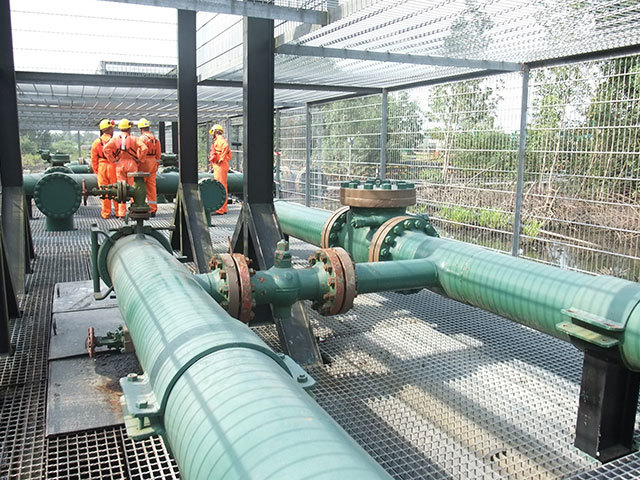
Nigeria is deploying more troops to protect oil installations to curb sabotage after a leak forced crude loadings to be suspended last month at a major export terminal.
“We’ve observed that some internal forces are bent on sabotaging the activities of the oil production companies,” Brigadier-General Rabe Abubakar, Nigeria Defence spokesman, said in interview in Abuja, Nigeria. “We are taking extra steps to ensure that we guard these facilities” including pipelines, oil platforms and other installations, he said.
Loading at the Forcados oil terminal, where Nigeria shipped around 200,000 barrels a day last year, was halted after the leak appeared on Feb. 14, according to Royal Dutch Shell Plc. While the company stopped short of calling it an act of sabotage, it said damage observed on the export pipeline was “consistent with the application of external force.”
Shell hasn’t said when it will lift the force majeure — a legal status protecting a party from liability if it can’t fulfill a contract for reasons beyond its control — on Forcados shipments.
Criminal Gangs
Nigeria, Africa’s biggest oil producer, loses an estimated 300,000 barrels a day to criminal gangs that tap crude from pipelines that criss-cross the oil-rich southern delta, using it in local refineries or selling it to tankers waiting offshore, according to state-owned Nigerian National Petroleum Corp. The country pumped 1.9 million barrels a day last year on average, according to data compiled by Bloomberg.
“We have a large task force that can contain any aggression,” Abubakar said. “We have enough troops and other security agencies that can face the challenge of the times.”
The move to protect energy installations follows complaints on Feb. 29 from Shoreline Natural Resources Ltd., the third biggest non-international Nigerian oil and gas producer. Chief Executive Officer Kola Karim urged the deployment of troops to the Delta region following the suspension of crude loadings at Forcados.
“We’re faced with the devil on all fronts,” Karim said. “Prices are awfully low, our export terminal has been attacked and we can’t export even if we produce.”